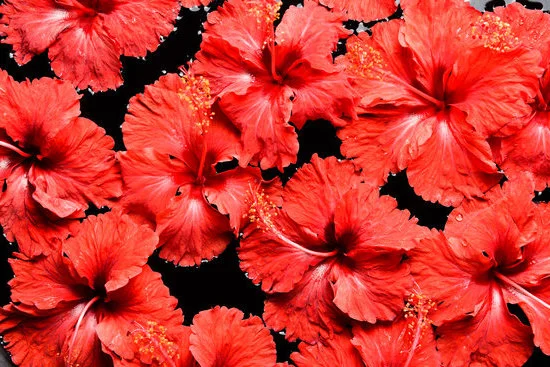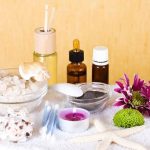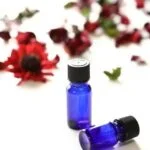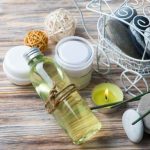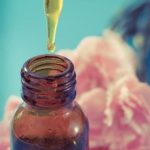Aromatherapy utilizes essential oils to promote physical and psychological well-being. Understanding the benefits of aromatherapy, how to use essential oils safely and effectively, and creating a personalized aromatherapy essential oil chart are crucial for harnessing the healing properties of these oils. This article will delve into the science behind aromatherapy, explore the top must-have essential oils, and provide tips for blending oils to create the perfect aroma.
Aromatherapy has gained popularity over the years for its holistic approach to healing. The use of essential oils in aromatherapy has been known to have various therapeutic effects on the body and mind. Essential oils are concentrated plant extracts that can be used in different ways such as inhalation, topical application, and even ingestion under professional guidance. Understanding how these oils work and their potential benefits sets the foundation for creating an effective aromatherapy routine.
In this article, we will discuss how to use essential oils safely and effectively, exploring their potential benefits for stress relief and relaxation. We will also cover how to create your own aromatherapy essential oil chart according to your individual needs. Additionally, we will provide insights into the top 10 must-have essential oils for aromatherapy, as well as tips and tricks for blending these oils to create the perfect customized blend for your specific needs.
Understanding the Benefits of Aromatherapy
Aromatherapy is gaining popularity as a natural and holistic approach to health and wellness. Essential oils are the key component of aromatherapy, and they offer various benefits for physical, emotional, and mental well-being. Understanding these benefits can help individuals make informed decisions about incorporating aromatherapy into their daily lives.
Some of the benefits of aromatherapy essential oils include:
- Stress reduction: Certain essential oils such as lavender, chamomile, and frankincense have been shown to have calming properties that can help reduce stress and anxiety.
- Improved sleep: Essential oils like lavender and bergamot can promote relaxation and improve sleep quality when used in a diffuser or added to a warm bath.
- Mood enhancement: Citrus essential oils such as lemon and orange are known for their uplifting properties, which can help improve mood and increase energy levels.
In addition to these emotional benefits, some essential oils also have antibacterial, antiviral, and anti-inflammatory properties that can support overall health. For example, tea tree oil is commonly used for its antimicrobial effects, while eucalyptus oil is known for its respiratory benefits.
When using aromatherapy essential oils for their therapeutic benefits, it’s important to choose high-quality oils from reputable sources to ensure maximum effectiveness. The use of pure essential oils can enhance physical and emotional well-being while minimizing potential side effects. By understanding the diverse benefits of different essential oils, individuals can tailor their aromatherapy practice to meet their unique wellness needs.
How to Use Essential Oils Safely and Effectively
When it comes to using essential oils for aromatherapy, it is important to know how to do so safely and effectively. Essential oils are highly concentrated plant extracts that can have potent effects on the mind and body. Here are some guidelines to follow when using essential oils:
- Always dilute essential oils before applying them to the skin. This can be done by mixing a few drops of the essential oil with a carrier oil, such as coconut oil or almond oil.
- Do a patch test before using a new essential oil to check for any allergic reactions or skin sensitivities.
- Be mindful of the potential interactions between essential oils and medication. If you are taking any prescription medications, consult with a healthcare professional before using essential oils.
In addition to topical application, essential oils can also be inhaled through methods such as diffusing or steam inhalation. When using a diffuser, be sure to follow the manufacturer’s instructions and use the recommended amount of essential oil. For steam inhalation, add a few drops of essential oil to a bowl of hot water and inhale the steam while keeping your eyes closed.
Ultimately, the key to using essential oils safely and effectively lies in understanding their potency and being mindful of proper usage guidelines. With the right knowledge and precautions, you can harness the benefits of aromatherapy without risking any negative side effects.
It is also beneficial to create an aromatherapy essential oil chart where you can keep track of different oils’ properties, safety precautions, and recommended uses. This will help you stay organized and make informed decisions when incorporating essential oils into your wellness routine.
The Science Behind Aromatherapy
Aromatherapy has been used for centuries as a natural and holistic approach to healing, relaxation, and overall well-being. The use of essential oils in aromatherapy has gained popularity in recent years, with an increasing body of research supporting its effectiveness. Essential oils are derived from various plant sources and contain unique compounds that contribute to their therapeutic properties.
Understanding the Chemical Composition and Therapeutic Properties
Essential oils are complex substances that contain a variety of chemical compounds such as terpenes, alcohols, esters, and phenols. These compounds are responsible for the characteristic aroma and therapeutic effects of each essential oil. For example, lavender essential oil is known for its calming and soothing properties due to its high concentration of linalool and linalyl acetate. On the other hand, peppermint essential oil contains menthol which provides a cooling effect and helps alleviate headaches and digestive issues.
How Essential Oils Interact With the Body
When inhaled or applied topically, the aromatic molecules of essential oils enter the bloodstream through inhalation or absorption through the skin. Once in the body, they interact with various physiological systems such as the nervous system, endocrine system, and immune system.
For instance, inhaling the aroma of lavender essential oil can have a calming effect on the nervous system by reducing stress hormones like cortisol. Additionally, certain essential oils have antimicrobial properties that can help boost immunity when used in aromatherapy.
Evidence-Based Research on Aromatherapy
Numerous studies have been conducted to investigate the therapeutic effects of essential oils in aromatherapy. Research has shown that certain essential oils have analgesic properties that can help alleviate pain, anti-inflammatory effects that reduce swelling and discomfort, as well as mood-boosting benefits for mental health.
Furthermore, clinical trials have demonstrated the efficacy of aromatherapy in reducing anxiety levels and improving sleep quality when using specific essential oils like chamomile or bergamot. As more scientific evidence emerges, it reinforces the value of including aromatherapy as a complementary therapy in healthcare practices.
Creating Your Own Aromatherapy Essential Oil Chart
To start creating your aromatherapy essential oil chart, begin by listing the essential oils you currently have in your collection. Include both single oils and any blends you may have. Next, research the properties and benefits of each oil, including their therapeutic uses and any safety precautions.
You can then organize this information into a simple chart format using a spreadsheet or even just pen and paper. Creating categories such as “calming,” “uplifting,” “digestive,” or “antibacterial” can help you categorize your oils based on their primary uses.
Once you have organized your essential oil chart, be sure to include any favorite DIY recipes for diffuser blends, massage oils, or homemade skincare products that feature these oils. This will make it easy for you to access these recipes quickly when needed.
As you continue to expand your collection of essential oils, update and evolve your chart to include new additions and experiences with each oil. Ultimately, creating an aromatherapy essential oil chart is a personal process that can enhance your overall aromatherapy journey.
| Essential Oil | Primary Uses | Safety Precautions |
|---|---|---|
| Lavender | Calming, Sleep Aid | Avoid use during pregnancy |
| Peppermint | Headache Relief, Digestive Aid | Avoid use with children under 6 years old |
| Lemon | Uplifting, Immune Support | Avoid sunlight after topical application |
Top 10 Must-Have Essential Oils for Aromatherapy
Introduction to Essential Oils
Essential oils have been used for centuries for their healing and therapeutic properties. These concentrated liquids are extracted from plants, flowers, and herbs, and are renowned for their ability to promote physical, emotional, and mental well-being.
Aromatherapy, the practice of using essential oils for therapeutic purposes, has gained popularity in recent years due to its natural and holistic approach to health and wellness. When used correctly, essential oils can provide a wide range of benefits, including stress relief, relaxation, pain management, and immune support.
Benefits of Aromatherapy Essential Oils
The benefits of aromatherapy essential oils are vast and diverse. Some essential oils are known for their calming and soothing effects, making them ideal for reducing stress and anxiety. Others have energizing properties that can help improve focus and concentration.
Many essential oils also possess antibacterial, antiviral, and anti-inflammatory properties that can support overall health and well-being. Whether used topically, inhaled through a diffuser, or added to bathwater or massage oil, essential oils offer a natural way to support the body’s functions and promote balance.
How to Create Your Own Aromatherapy Essential Oil Chart
Creating a personalized aromatherapy essential oil chart is an excellent way to keep track of your favorite oils and their various uses. Start by listing the top 10 must-have essential oils for aromatherapy based on your preferences and needs. Then include details such as the botanical name of each oil, its aroma profile (e.g. floral, citrusy, woody), its primary benefits (e.g.
relaxation, immune support), as well as the different ways you can use it (e.g. diffusion, topical application). Organizing this information into a chart or table will not only help you stay organized but also make it easier to select the right essential oil for specific wellness goals.
Utilizing Aromatherapy Essential Oils for Stress Relief and Relaxation
Aromatherapy essential oils have been used for centuries to promote relaxation and reduce stress. The use of these natural oils can have a calming effect on the mind and body, making them an ideal solution for those looking to alleviate everyday stressors. These essential oils are extracted from plants and can be used in a variety of ways to create a peaceful and soothing atmosphere.
One popular method of utilizing aromatherapy essential oils for stress relief is through the use of a diffuser. By adding a few drops of your chosen essential oil to a diffuser, you can fill the air with a pleasant aroma that promotes relaxation. Additionally, you can also apply diluted essential oils directly onto your skin, or add them to bathwater for a luxurious and calming experience.
According to research, some essential oils have been found to have specific stress-relieving properties. For example, lavender oil has been shown to reduce anxiety and improve sleep quality, while citrus oils such as bergamot and orange can uplift mood and reduce stress levels. Creating your own aromatherapy essential oil chart can help you identify which oils are best suited for stress relief based on their unique properties.
| Essential Oil | Properties |
|---|---|
| Lavender | Reduces anxiety and improves sleep quality |
| Bergamot | Uplifts mood and reduces stress levels |
| Orange | Upgrades mood and diminishes stress levels |
Aromatherapy Essential Oil Blending
In conclusion, creating the perfect blend of essential oils for aromatherapy can be both an art and a science. By understanding the benefits and healing properties of different essential oils, you can create customized blends that cater to your specific needs and preferences. Utilizing an aromatherapy essential oil chart can be a valuable tool in this process, as it allows you to easily compare and combine different oils based on their therapeutic properties.
When blending essential oils, it’s important to consider factors such as scent profile, intensity, and potential interactions between oils. Experimenting with different combinations and ratios is key to finding the perfect blend that resonates with you. Whether you’re looking for stress relief, relaxation, or an energy boost, there are endless possibilities when it comes to creating personalized aromatherapy blends.
In addition to exploring your own creativity and intuition, seeking guidance from experienced aromatherapists or consultants can also provide valuable insights and recommendations for creating the perfect blend. With patience, practice, and a deeper understanding of essential oils, you can embark on a journey of self-discovery and wellness through the art of aromatherapy essential oil blending.

Are you looking for a natural way to improve your health and wellbeing?
If so, aromatherapy may be the answer for you.

